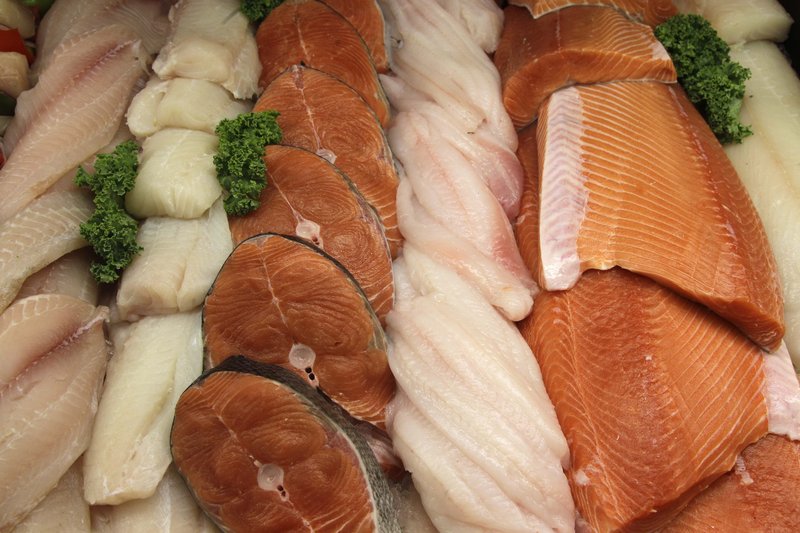PORTLAND, Ore. — Whole Foods Market Inc. is trying to clear some murky waters for seafood shoppers.
The grocery chain on Monday launched a new color-coded rating program – with the help of the Monterey Bay Aquarium and Blue Ocean Institute – that measures the environmental impact of its wild-caught seafood.
The program is the latest in a series of moves by major grocers to change seafood policies as concern rises about overfishing and the environmental effects of certain fishing methods.
Similar to a stoplight, seafood is given a green, yellow or red rating. A green rating indicates the species is relatively abundant and is caught in environmentally friendly ways. Yellow means there are some concerns about a species’ status or the methods by which it was caught. And a red rating means the species is suffering from overfishing, or the methods used to catch it harm other marine life or habitats.
The company, based in Austin, Texas, said it is the first national retailer to display such ratings.
Whole Foods said the program complements its wild-caught rating program with the Marine Stewardship Council, a certification program that addresses only a fraction of seafood sold. And it adds to the grocer’s farmed seafood policies, which prohibit antibiotics and sulfates and set other standards.
“There has been a huge increase in attention and energy and enthusiasm (on sustainable seafood) from customers and buyers and fishermen,” said Carrie Brownstein, coordinator of seafood quality standards for Whole Foods.
Target Corp. decided at the beginning of the year to stop carrying farmed salmon. Safeway Inc. stopped carrying overfished species, including grouper and monkfish.
A number of chains, including Wegman’s and Aldi, have come up with sustainable seafood policies. Retail behemoth Walmart dropped swordfish, shark and frozen orange roughy last year after cutting other controversial species previously.
After much pressure from environmental groups, Trader Joe’s announced last spring that it would sell only sustainable-sourced seafood by the end of 2012.
Whole Foods also announced Monday that it will end sales of red-rated species by Earth Day 2013. The company has already phased out a number of such products.
These moves are critical, wildlife and ocean advocates say, because about half the seafood purchased in the U.S. comes from retailers.
Send questions/comments to the editors.



Success. Please wait for the page to reload. If the page does not reload within 5 seconds, please refresh the page.
Enter your email and password to access comments.
Hi, to comment on stories you must . This profile is in addition to your subscription and website login.
Already have a commenting profile? .
Invalid username/password.
Please check your email to confirm and complete your registration.
Only subscribers are eligible to post comments. Please subscribe or login first for digital access. Here’s why.
Use the form below to reset your password. When you've submitted your account email, we will send an email with a reset code.